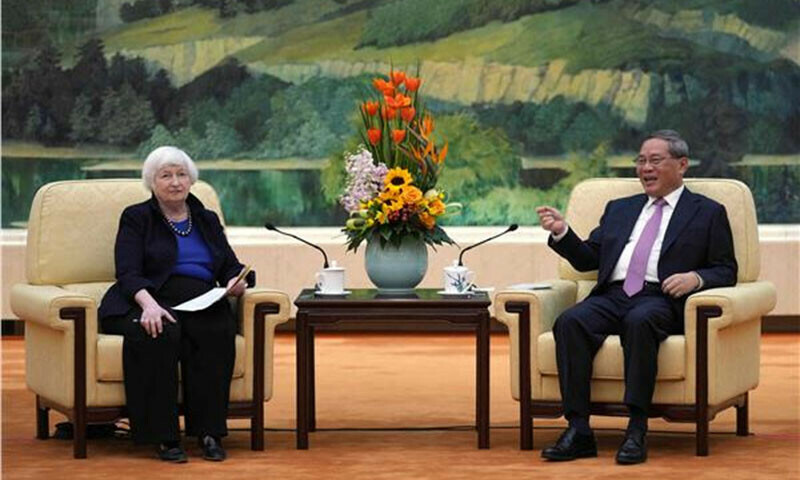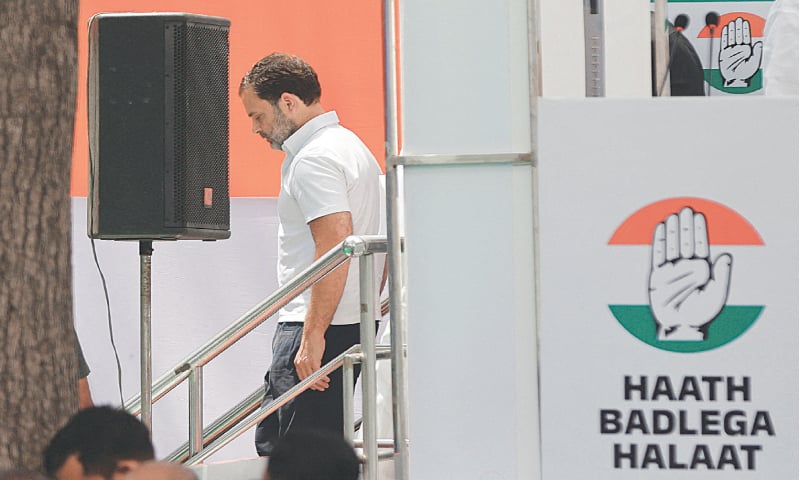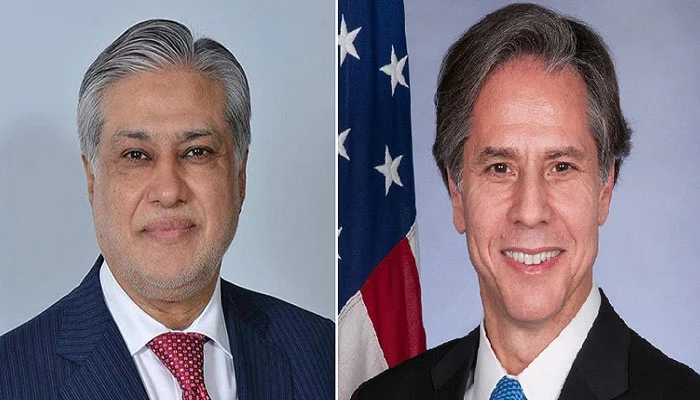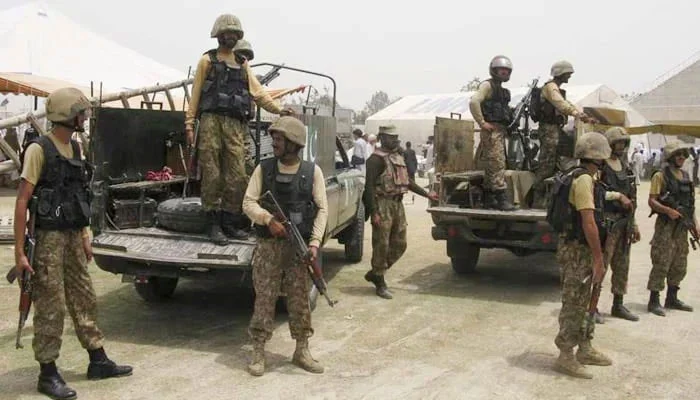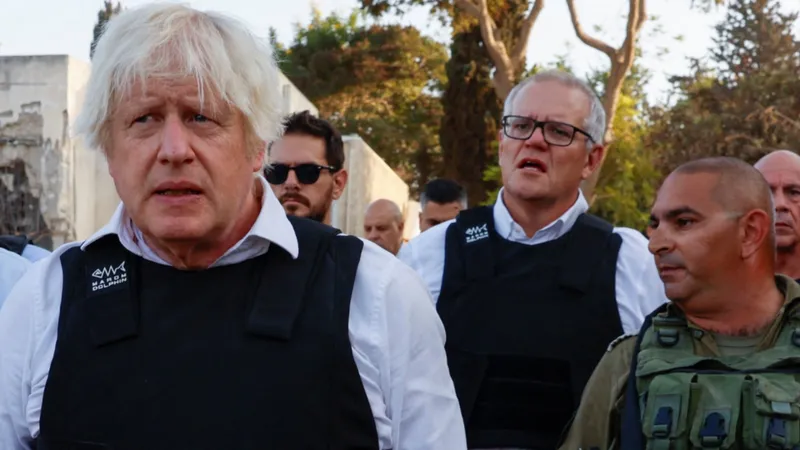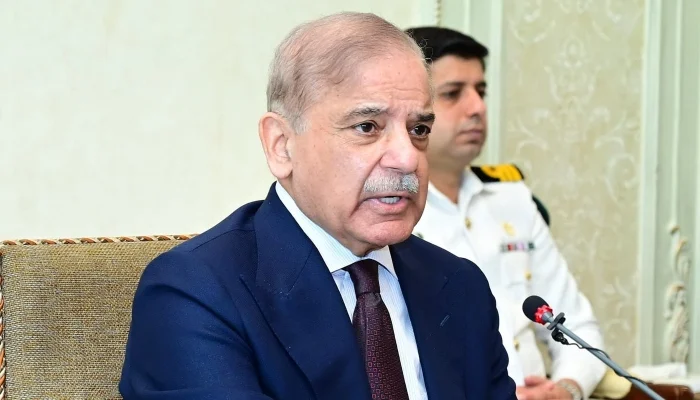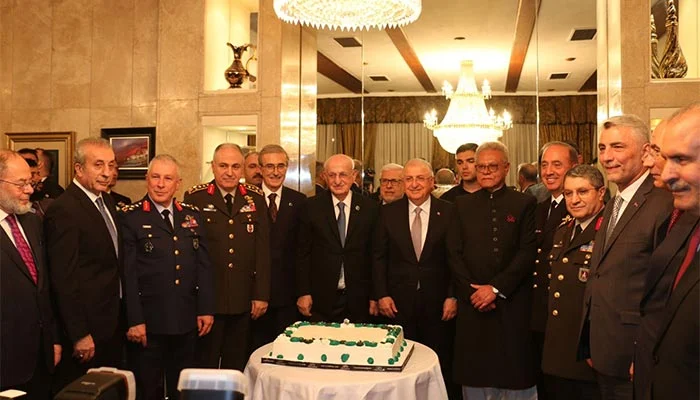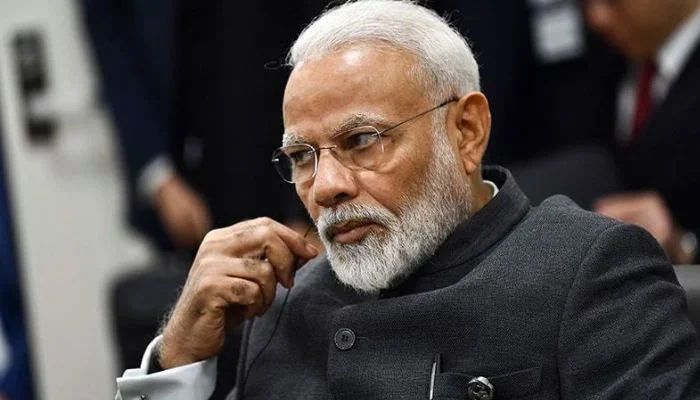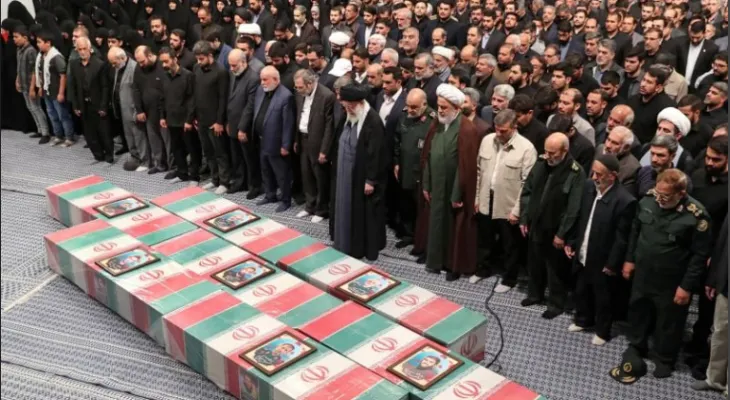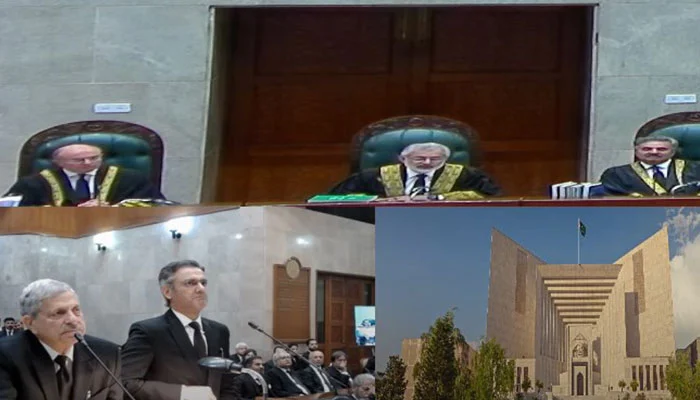ISLAMABAD: Chief Justice Qazi Faez Isa Wednesday that the Supreme Court will not tolerate any interference in judicial affairs and is taking the letter by Islamabad High Court judges “very seriously”.
The chief justice further remarked that the letter mentions the Supreme Judicial Council, indicating that it does not address the Supreme Court.
CJP Isa’s remark came during the hearing of SC’s suo motu notice taken on the letter written by Islamabad High Court (IHC) judges that cites complaints of interference in judicial affairs by intelligence agencies.
The hearing is being conducted by a seven-member SC bench headed by Chief Justice Qazi Faez Isa and comprising six other judges — Justice Syed Mansoor Ali Shah, Justice Yahya Afridi, Justice Jamal Khan Mandokhel, Justice Athar Minallah, Justice Musarrat Hilali and Justice Naeem Akhtar Afghan.
The SC is conducting live proceedings of the hearing.
“Judges must be sure that they are not in danger,” CJP Isa said during the hearing.
The chief justice said he cannot exercise the contempt power of any other court.
“The court which is in contempt will exercise this power itself.”
“There is zero tolerance on the independence of judiciary,” said the chief justice.
However, the judge questioned lawyers, who demanded a suo motu notice in the aforementioned matter, where they were when not a single meeting of the full court was conducted in four years.
“Full court performs the administrative function, not judicial function.,” he said.
The chief justice said: “My colleagues and I will stand before any attack on the independence of judiciary.”
However, he maintained that the court does “not like interference in the work of the judiciary”.
He further remarked: “If anyone has an agenda…they should become the chief justice. We will not take the pressure; we are working administratively.”
During the hearing, the AGP read out the trail of events following the IHC judges’ letter including the meetings held between CJP Isa and the judges.
The chief justice, in response to the AGP, said: “We did not meet at home by hiding from the executive, we did not meet in the chamber. We held a meeting as an administrator, the difference in law is clear.”
The AGP later apprised the court on the government’s decision to appoint former chief justice Tasadduq Hussain Jillani as head of the inquiry commission.
The CJP was also displeased with the discussion being held on social media regarding Justice (retd) Jilani.
The chief justice later remarked that the SC does not have the power to create a commission in the Constitution.
“The authority to form the commission is with the government, we consulted and gave the names,” he said.
The AGP, meanwhile, said that the law does not allow the government to interfere in the commission of inquiry.
Later commenting on the independence of judiciary, the AGP said: “I assure you that the federal government will not take any action that will affect the independence of the judiciary.”
The CJP, terming social media as a “new epidemic”, spoke about the pressure regarding the letter and the events that have unfolded in its wake.
At the outset of the hearing, the CJP Isa clarified that the three-member committee now decide cases and the chief justice’s will is no longer important. “Neither the committee exercise the authority of the court nor the court override the committee’s power.
The CJP was upset about petitions being published in the media before even being filed in the court. He also shared his displeasure over lawyer pressuring the SC to take suo motu notice.
“Is it [to impose] pressure? I do not come under anyone’s pressure,” said the chief justice.
CJP Isa maintained that lawyers who seek suo motu notice should quit legal practice.
The AGP, following the conclusion of his statement before the court, said that the government stands by the independence of judiciary.
Attorney General for Pakistan Mansoor Usman Awan earlier began his arguments in the matter. The SC has sent a notice for him to appear before the bench.
Addressing the AGP, the chief justice remarked that two things must be ascertained in such matters which include, the conduct of an inquiry and bringing the facts to the fore. “Who should carry out these two tasks?”
During the hearing of the suo motu case, Justice Mansoor Ali Shah said: “We cannot avoid this important issue by hiding our necks in the sand like ostriches.”
He added that the protection of a civil judge, who is under pressure, should be investigated.
“We have to solve this serious matter,” he remarked.
Political engineering continuing: Justice Athar Minallah
“Everyone knows what is happening, but everyone is giving an impression that nothing is happening,” said Justice Minallah.
Referring to the contents of the letter, the SC judge said the judges pointed towards political engineering.
“Political engineering has been going on in the country and the Supreme Court has also been involved.”
The SC judge added that the court cannot close its eyes, as “a lot is happening”.
“All this has been going on since 2017, let’s not open the past,” said Justice Minallah.
CJP Isa, intervening in the matter, said that this case may be heard by a full court in the future.
He further added that the IHC judges, in the letter, mentioned that they referred their matter to their chief justice, but he hasn’t done anything.
The high court has its own powers, why is the chief justice not using them,” he remarked.
The CJP said the apex court doesn’t want to interfere in the matters of the high court but can make it aware of its powers.
The hearing was then adjourned till April 29.
Suo motu notice of letter
Earlier this week, the SC took suo motu notice of the matter after around 300 lawyers, belonging to various bar associations across the country, signed a petition demanding CJP Isa to exercise the apex court’s suo motu jurisdiction under Article 184(3) of the Constitution on the letter.
The lawyers also rejected the formation of an inquiry commission led by former chief justice of Pakistan Justice Tassaduq Hussain Jilani to probe the allegations.
It was learnt that the chief justice had referred the matter to a judges’ committee — comprising himself and three senior most judges of the apex court under the Supreme Court (Practice and Procedure) Act 2023 — for deliberation and constitution of a bench for hearing the matter.
The committee later decided to exercise suo motu jurisdiction under Article 184(3) of the Constitution and fix the matter for hearing on April 3.
Letter by IHC judges
On March 25, six judges of Islamabad High Court (IHC) had demanded Chief Justice of Pakistan Justice Qazi Faez Isa to convene the Judicial Convention to consider the matter of interference of intelligence operatives in the judicial functions or intimidation of judges in a manner that undermined independence of the judiciary.
The IHC judges, including Justice Mohsin Akhtar Kayani, Justice Babar Sattar, Justice Arbab Muhammad Tahir, Justice Tariq Mahmood Jehangiri, Justice Sardar Ejaz Ishaq Khan and Justice Saman Rifat Imtiaz, wrote a letter to the chief justice, who is also the chairman of the Supreme Judicial Council (SJC).
After the letter went viral and considering the gravity of allegations it mentioned, the chief justice called a meeting the same day with the IHC chief justice and all the judges after Iftar at 8pm at his residence during which the concerns of all the judges were heard individually.
The following day, on March 27, the CJP met with the attorney-general and the law minister, and thereafter, the chief justice and the senior puisne judge met with the president of Supreme Court Bar Association (SCBA) and the senior most member of the Pakistan Bar Council in Islamabad.
A full-court meeting of all the SC judges, called under the chairmanship of the chief justice of Pakistan at 4pm the same day, deliberated on the issues raised in the letter.
The full-court developed a consensus by majority that the chief justice may hold a meeting with the prime minister of and raise the issue with him. CJP Isa then met with Prime Minister Shahbaz Sharif in the Supreme Court where he clearly stated that interference by the executive in the affairs and judicial workings of judges will not be tolerated.
During the meeting, constitution of an inquiry commission was proposed under the Pakistan Commissions of Inquiry Act, 2017. The prime minister fully endorsed the views expressed by the CJP and senior puisne judge and assured them that he will be taking other appropriate measures to ensure an independent judiciary.
After further consultations among the CJP and other judges as well as the federal government’s actions in this regard, the announcement of a one-man inquiry commission comprising former CJP Tassaduq Hussain Jillani was made, who recused himself from the opportunity, citing various constitutional reasons.


